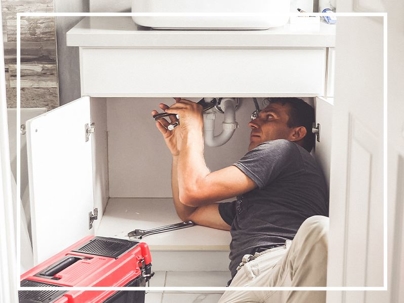There are some things plumbers want folks to know. The following are 10 things that'll make your plumber happy and help you, too.
1. Water meter and a leak
One thing you should learn to do is check for a leak. All you need to do is ensure no water is running in the home. No showers should be running, no washing machines, or anything else. After that, go to your water meter outside and see if it's moving. If it is, that means there's a leak in the house since that meter shouldn't be moving.
2. Septic lines safety
Some people with a septic system forget that lateral septic lines are buried under their property. One day they drive over that area with something heavy and damage the line, causing a problem that is quite expensive to deal with. You don't want to be that person. Mark areas where your lines are buried, or make sure the lines are visible so that you don't forget.
3. Don’t trash the toilet
Okay, stop throwing certain things into your toilet. Don't try to flush paper towels, feminine hygiene products, or anything that doesn't belong in there. Items like these won't break down, and that means you could cause a clog at some point. You'd be surprised how much junk a plumber can find in a toilet that's been abused.
4. Water around the toilet
A problem you don't want to ignore is a little water around the base of your toilet. Even the smallest amount of water around your toilet could be a sign of a bigger problem. In all likelihood, there could be a wax seal leak you have to address as soon as possible. You might not think much of this leak since it's just a small puddle, but the floors underneath your toilet might be suffering water damage.
5. Flush that water heater
Water heaters need to be flushed once a year, yet many people don't do this. Most of the time, they don't do this because they don't know how important it is. You aren't going to be one of these folks because you're learning about the mineral deposits that build up in your water tank if you don't flush. The more build-up, the higher the chances that your machine will suffer damage prematurely.
6. Vacation water shut off
Your plumber wants you to learn to shut off your water when you are going away on vacation. If you leave your water on, there is a chance you could come home to a flooded home. Since no one is in your home, the damage from this disaster could be quite severe and expensive. You can have your plumber shut off the water, or you can shut off your water valves yourself. Be sure to open the faucets afterward to relieve any pressure.
7. Know your limits
A lot of folks love to do things on their own. This does make sense since you get to save money, and you get the satisfaction of knowing you're taking care of your own home. That being said, do not do something you aren't sure about. You don't want to be the person taking on something too complicated and end up causing a bigger problem.
8. Garbage disposal care
Your garbage disposal is not a trashcan. Don't throw everything in there like it doesn't matter. Potato skin and celery are examples of things the garbage disposal can't handle, so use this knowledge or risk causing damage or a clog.
9. Fatty oils are trash
It's tempting to dump fatty oils like lard or olive oil down your drain, but that's a mistake. Fatty oils solidify when they get cold, and that means they can cause a clog. Let all fatty oils cool and dump them in your trash can instead.
10. Avoid harsh cleaners
People use harsh, caustic cleaners on their pipes when there's a clog. Don't be the person who does this. If you have old pipes, you might cause more damage. Stick to natural pipe cleaners that use enzymes to eat away clogs and keep your pipes safe.
These are some things your plumber wants you to know, but there's so much more if you are willing to learn.

